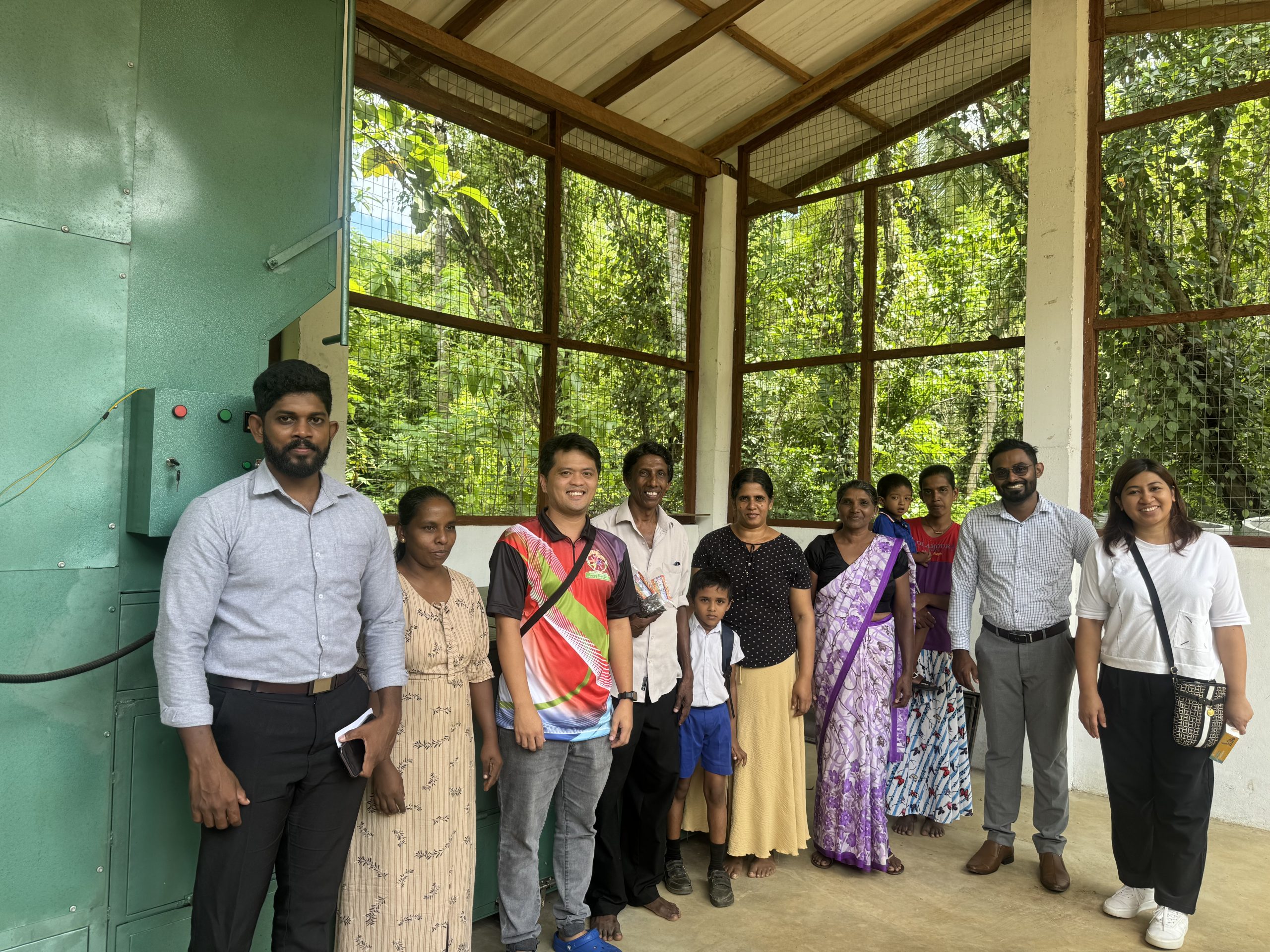Located in Monaragala District, Uva Province, Sri Lanka, the Bibile Agrarian Cooperative Society was established in 2022 to improve its members’ income through value-added products and sustainable agricultural practices. With 103 members, including 70 women and 18 youth, the cooperative is organized across four villages, each with its own management team. Regular monthly meetings are held to facilitate planning and updates.
Beyond its business operations, the cooperative is actively engaged in policy advocacy, with 60 members involved in discussions on national land policies, deforestation, and organic agriculture. As a member of the Movement for National Land and Agricultural Reform (MONLAR), the cooperative plays a significant role in promoting sustainable farming and land rights policies.










Before acquiring a dehydrator machine in late 2023, members primarily sold raw pepper at LKR 250–300 (USD 1) per kilogram. The introduction of the drying machine significantly boosted their processing capacity, allowing them to produce high-quality dried pepper, which now sells for LKR 1,000 (USD 4) per kilogram. The cooperative has used the machine four times so far, processing up to 750 kilograms of raw pepper in a single 16-hour cycle (8 a.m. to 10 p.m.).
Products are sold through local retail shops and cooperatives such as ECOAPECoop, a MONLAR initiative, with additional promotions carried out by cooperative members in nearby towns. Looking ahead, the cooperative plans to expand its market reach through partnerships, including with SANASA Green Mart. It also aims to enhance its processing capacity, particularly for high-value white pepper, and strengthen its capital base to purchase raw materials from both members and non-members. To support this, the cooperative seeks to increase its purchase volume to 250 kilograms of raw pepper per member, ensuring stable market linkages and better incomes for all members.
2024 Production and Financial Performance
- Raw pepper processed: 500 kilograms
- Dried pepper produced: 166 kilograms
- Revenue from dried pepper sales: LKR 4,100 (sold at LKR 1,000 per 500g)
The cooperative has received financial support from the APFP-FO4A and ARISE programs, which have played a crucial role in enhancing its operations. Recently, the cooperative secured an ARISE loan of LKR 270,000 to support its activities. Additionally, member shares total LKR 150,000, with installment-based share purchases available at LKR 5,000 per member.
Despite its progress, the cooperative faces several challenges that need to be addressed for sustained growth. These include limited capital to purchase additional raw pepper from non-members, volatile market prices for pepper, and the absence of dedicated staff, as operations currently rely on volunteers. Additionally, the declining interest in farming among youth and limited technical knowledge and market connections pose hurdles to long-term sustainability.
To overcome these challenges, the cooperative is exploring ways to secure additional financial support, strengthen market linkages, and encourage youth participation in farming. By enhancing its technical capacity and expanding its reach in both local and regional markets, the Bibile Agrarian Cooperative Society aims to ensure better income opportunities for its members while promoting sustainable agricultural practices.
The Bibile Agrarian Cooperative Society is one of the partner organizations supported by the APFP-FO4A program, which is implemented in Sri Lanka by SANASA International.
The Asia Pacific Farmers’ Programme (APFP)- Support to Farmers’ Organizations for Asia (FO4A) aims to contribute to an enabling environment for rural poverty reduction, through instrumental support to rural smallholders and their organizations at national, sub-regional, and regional levels in Asia and the Pacific. The objective is that by the end of the program, farmer organizations are professionally capacitated to provide sustainable demand-driven (business and technical) services to their members and engage in effective policy dialogue for the improved livelihoods and incomes of smallholder farmers/producers in Asia and the Pacific. APFP-FO4A is implemented in Cambodia, Indonesia, Laos, Myanmar, Philippines, Thailand, Vietnam, Bangladesh, India, Nepal, Pakistan, Sri Lanka, Mongolia, and China. APFP-FO4A benefits around 25 million individuals–of which 4.5 million are women and 4 million are youth. APFP is financed by the International Fund for Agricultural Development (IFAD) and FO4A is co-financed by the European Union (EU) and IFAD.
APFP-FO4A is implemented by the consortium Asian Farmers’ Association for Sustainable Rural Development (AFA) and La Via Campesina (LVC).

Comments are closed